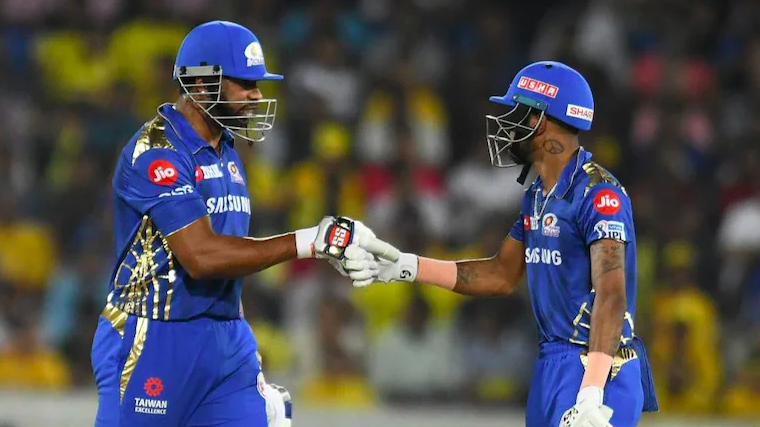Indian all-rounder Hardik Pandya always carries around a Caribbean swagger with him, and he enjoys the company of his Mumbai Indians teammates from the West Indies. Over the years, the 28-year-old has maintained a great relationship with his MI teammate Kieron Pollard and says he is pretty Indian in many things he does.
As mentioned by Pandya in the interview he gave to Cricket Monthly, Pollard has plenty of attributes that make him a quintessential Gujarati. He said that Pollard is someone who thinks about investing money in property and growing his assets gradually rather than buying a car.

He also pointed out that the West Indian captain attends many functions to maintain his connections, and he never wastes a single penny.
“We call him grandpa. He is from West Indies but he is actually a Gujarati at heart. He literally functions like an Indian: a guy who believes in property, a guy who believes in investments, a guy who believes: instead of buying a car, I’ll buy property because it will grow, ek rupiah nahin waste karoonga [I won’t waste a rupee],”
Pandya said.
He added that Pollard has been like Krunal Pandya in his life, an elder brother presence. He has taught him a lot of things over the course of his career, and there were plenty of times when he calmed him down when things did not work in his way.
The 34-year-old has been a part of the Mumbai Indians since 2010, playing a crucial role in all of their five trophy-winning campaigns. Pandya joined the side in 2015, and both these all-rounders have formed a crucial crux, enabling their side to escalate to heights that no other IPL team could manage.

Pollard and Pandya won’t face off against each other in the group stages of the T20 World Cup, but it is highly likely for them to come up against each other in the knockout stages.
India are grouped alongside Afghanistan, Pakistan and New Zealand, whilst West Indies are accompanied by Australia, England and South Africa.
Both the Super 12 groups are awaiting two teams each to enter this stage from the ongoing group stages.


